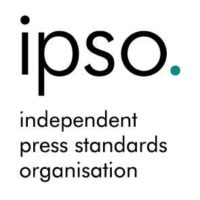By Sheila Mckenzie-
The press watchdog has rapped a newspaper for wrongly reporting that a convicted gunman had refused to apologise to the victims of a massacre.
The Independent Press Standards Organisation has upheld a complaint against Sunday Life after it claimed Denis Paisley refused to say sorry to the families of the victims of a 1992 attack at a Belfast bookmakers.
Five people were murdered in the massacre and seven others were injured when two masked Ulster Defence Association gunmen opened fire in Sean Graham’s bookmakers.
Mr Paisley complained to IPSO after the Belfast-based paper covered a recent Police Ombudsman report which considered the investigations by police into a number of attacks, including the one on the betting shop.
The story focused on Mr Paisley, who Sunday Life believed featured heavily in the report, under a cipher, detailing his previous conviction for possessing a weapon used in the incident.
The paper reported that he had “refused to answer when our reporter asked if he would apologise to the families of the Sean Graham victims” but Mr Paisley claimed the reporter had not actually asked him whether he wished to do so.
The article focused on the complainant who the publication believed featured heavily in the report, under a cipher, detailing his previous conviction for possessing a weapon used in the incident. Following the publication of the Ombudsman report, the newspaper approached the complainant at his home for comment and took a photograph of him; this image was cropped to show the complainant’s head and bare shoulders and was published both on the front page and again alongside the article in the inside pages.
The text on the front page stated: “The ex-UDA man caught with a gun used in the Ormeau Road bookies massacre has refused to apologise to the victims’ families”. The article further stated that the complainant had “refused to apologise to the victims’ families”; “When approached at his Lisburn home last week, Paisley refused to answer when our reporter asked if he would apologise to the families of the Sean Graham victims”; “Paisley also refused to answer any questions regarding his possession of the Browning or what he intended to use it for on the day that he was caught”. An image caption said “SNUB: Denis Paisley refused to speak to us”.
Complaining under Clause 1 (Accuracy), Clause 2 (Privacy), Clause 3 (Harassment) and Clause 10 (Clandestine devices and subterfuge) of the Editors’ Code of Practice, Mr Paisley told IPSO he had never been asked to apologise for the atrocity prior to the approach from the journalist, because his conviction for possession of the weapon was nothing to do with the incident.
He provided an account of the exchange with the journalist and said the conversation ended when he made clear he did not wish to comment, either directly or through a solicitor, and then closed the door.
Denying any breach of Code, Sunday Life said the journalist had recorded the exchange at the doorstep – which had lasted for one-and-a-half minutes – for accuracy purposes, and provided a copy of the recording to IPSO which it said demonstrated the journalist was polite and gave Mr Paisley an opportunity to respond to his questions.
The newspaper said the journalist had given the gun man ample opportunity to apologise for his association with the incident, or to sympathise with the families of the victims, but instead he had repeated that he did not wish to say anything.
IPSO found the newspaper’s version of events to have been erroneous.
The watchdog said the recording of the exchange confirmed that the journalist had asked whether Mr Paisley had anything to say to the families of the victims, to which he had said he had no comment.
The press watchdog’s investigation found that the journalist did not expressly ask whether he wished to apologise to the families and it was therefore inaccurate to report that Mr Paisley had refused to apologise.
The distinction between declining to provide a comment and refusing to apologise was significant given that it might be construed as indicating Mr Paisley’s attitude toward the families of the victims and the incident more generally, IPSO ruled.
It concluded that misreporting the exchange, particularly when a recording was available, amounted to a failure to take care not to publish inaccurate information. No other breaches of Code were found.
The gun man effectively successfully proved that the paper had misrepresented the facts.
In one sense the paper was not wrong because the gun man expressed no remorse at all when giving the chance by the paper. But he did not exactly refuse to apologise.
The story is ironic because the gun man is obviously a dangerous man who should have no legitimate complaint to make.
However, who knows how he may have reacted if he wasn’t given the decision by the press watchdog. Another bullet could have gone off somewhere.




